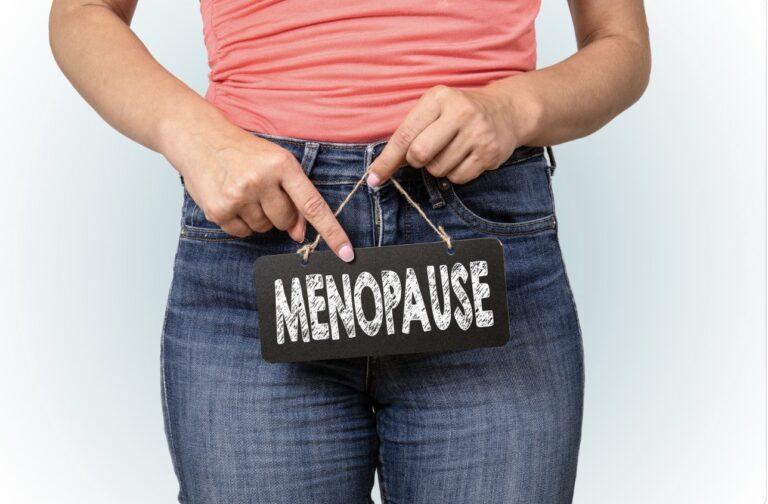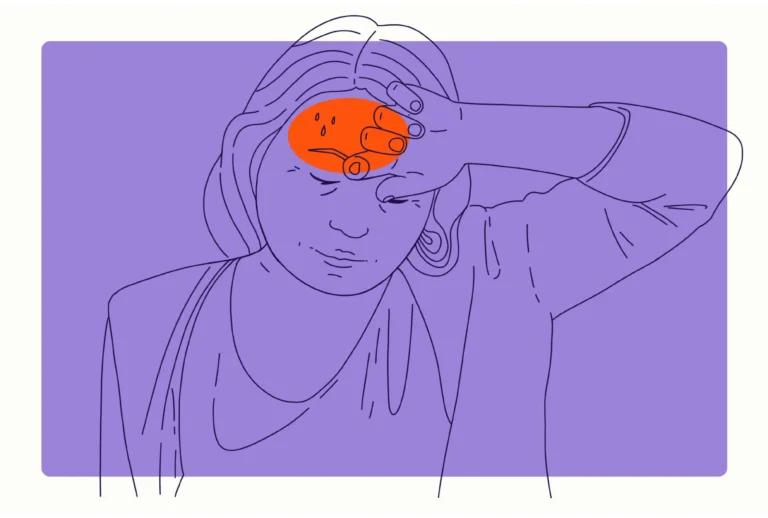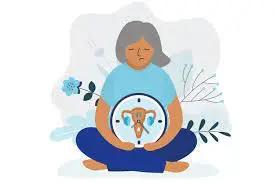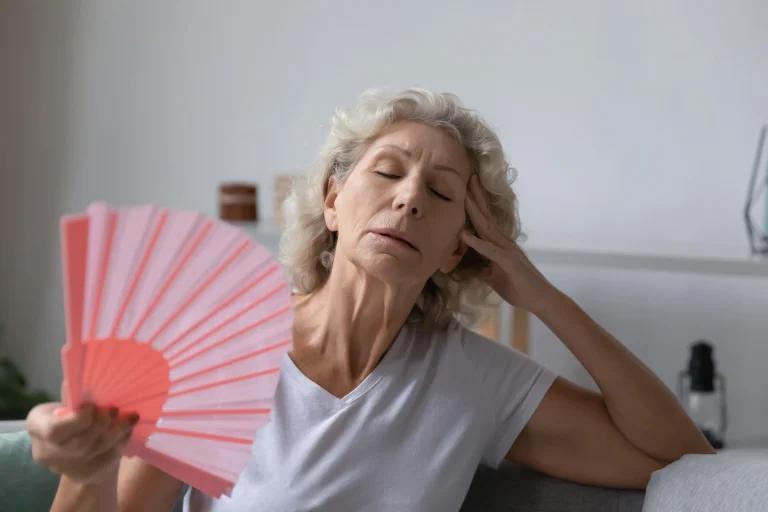

September 17, 2025 (Current Version)
March 28, 2025
Menopause is a natural biological process that marks the end of a woman’s reproductive years. It is a significant milestone that every woman will experience at some point in her life. While menopause typically occurs around the average age of 51, there are cases where women may enter menopause at an earlier age. In this comprehensive guide, we will explore the topic of early menopause and answer the question: How early can menopause start?
Understanding menopause
Menopause is the point in a woman’s life when her menstrual periods permanently cease. It is a result of the natural decline in reproductive hormones, particularly estrogen and progesterone, produced by the ovaries. The hormonal fluctuations associated with menopause can lead to a range of physical and emotional changes.
During menopause, women may experience symptoms such as hot flashes, night sweats, mood swings, vaginal dryness, sleep disturbances, and irregular periods. These symptoms can vary in intensity and duration, and their onset can differ from woman to woman.
Before reaching menopause, women go through a menopause transition phase called perimenopause. Perimenopause begins in a woman’s mid to late 40s and can last for several years before menopause is officially reached. During this time, hormone levels fluctuate, causing irregular periods and various symptoms.
Differentiating early menopause and premature menopause
Early menopause and premature menopause are terms used to describe menopause that occurs before the age of 45 and 40, respectively. While menopause is a natural part of ageing, early and premature menopause can present unique challenges for women.
Early Menopause: Early menopause refers to menopause that occurs before the age of 45. It is relatively common, affecting approximately 5% of women. Women experiencing early menopause may notice changes in their menstrual cycles, hot flashes, mood swings, and other menopausal symptoms.
Premature Menopause: Premature menopause, on the other hand, occurs before the age of 40 and is relatively rare, affecting about 1% of women. Women who enter premature menopause may face more significant challenges, as the transition is more sudden and may impact their fertility and overall health.
Premature ovarian failure vs. premature menopause
Premature menopause is not the same as premature ovarian failure, although the terms are sometimes used interchangeably. Premature ovarian failure, now referred to as primary ovarian insufficiency (POI), is a condition where the ovaries stop functioning properly before the age of 40.
Unlike premature menopause, where menstruation ceases permanently, women with POI may still have irregular periods and the possibility of occasional ovulation. This means that women with POI may still have the potential to conceive and become pregnant, whereas women with premature menopause no longer have this capability.
Factors influencing the onset of early menopause
Several factors can influence the onset of early menopause. While some of these factors are beyond our control, understanding them can help shed light on why some women experience menopause at a younger age. Here are some key factors:
- Genetics: Family history plays a role in determining when menopause may occur. If your mother or sisters experienced early menopause, you may be more likely to do so as well
- Smoking: Women who smoke tend to experience menopause earlier than non-smokers. Smoking can accelerate the decline of ovarian function, leading to an earlier onset of menopause
- Medical treatments: Certain medical treatments, such as chemotherapy or radiation therapy for cancer, can damage the ovaries and trigger early menopause. Surgical removal of the ovaries (oophorectomy) or uterus (hysterectomy) can also induce menopause if the ovaries are removed
- Autoimmune diseases: Autoimmune disorders, such as thyroid disease and rheumatoid arthritis, have been associated with an increased risk of early menopause
- Lifestyle factors: Poor diet, lack of exercise, and obesity can contribute to hormonal imbalances and potentially lead to early menopause
Signs and Symptoms of Early Menopause
Early menopause shares many symptoms with natural menopause, but it occurs at a younger age. It’s important to recognise these signs and seek medical advice if you suspect you may be experiencing early menopause. Here are some common symptoms of menopause:
- Irregular Menstrual Cycles: One of the first signs of early menopause is changes in menstrual patterns. Your periods may become irregular, shorter or longer, heavier or lighter, or you may skip periods altogether
- Hot Flashes and Night Sweats: Hot flashes and night sweats are commonly associated with menopause. These sudden waves of heat can cause flushing, sweating, and discomfort, often disrupting sleep
- Mood Changes: Hormonal fluctuations during menopause can impact mood and emotional well-being. Women experiencing early menopause may experience mood swings, irritability, anxiety, or depression
- Vaginal Dryness: Declining estrogen levels can lead to vaginal dryness, making intercourse uncomfortable or painful. This can affect sexual satisfaction, sex drive and overall quality of life
- Sleep problems: Many women going through early menopause may experience sleep disturbances, including difficulty falling asleep, staying asleep, or experiencing night sweats that disrupt sleep
- Bone Health: Estrogen plays a crucial role in maintaining bone density. Early menopause can increase the risk of osteoporosis and related fractures. It’s essential to prioritize bone health through diet, exercise, and, if necessary, medications
- Urinary Symptoms: Some women may experience urinary symptoms such as increased frequency, urgency, or incontinence during early menopause
Managing early menopause symptoms
If you are experiencing early menopause symptoms, there are several strategies and treatment options available to help manage them. Here are some options to consider:
- Lifestyle Modifications: Adopting a healthy lifestyle can alleviate some symptoms of early menopause. Regular exercise, a balanced diet, stress management techniques, and adequate sleep can all contribute to overall well-being
- Hormone Replacement Therapy (HRT): HRT involves taking medications that contain hormones (estrogen and progesterone) to replace those that the body no longer produces. HRT can effectively alleviate menopausal symptoms but should be discussed with a healthcare provider to determine the appropriate course of treatment
- Non-Hormonal Medications: Certain medications, such as selective serotonin reuptake inhibitors (SSRIs), can help manage symptoms like hot flashes and mood changes
- Vaginal Lubricants and Moisturizers: Over-the-counter vaginal lubricants and moisturizers can help relieve vaginal dryness and discomfort during intercourse
- Bone Health Management: To maintain healthy bones and reduce the risk of osteoporosis, it’s important to ensure an adequate intake of calcium and vitamin D, engage in weight-bearing exercises, and discuss bone-preserving treatments with your healthcare provider if necessary
- Emotional Support: Going through early menopause can be emotionally challenging. Seek support from friends, family, or support groups to help navigate this transition
Consultation with a healthcare provider
If you suspect you may be experiencing early menopause or have concerns about your symptoms, it’s important to consult with a healthcare provider. They can assess your medical history, perform necessary tests such as blood tests, and provide guidance on managing your symptoms and optimising your overall health.
Remember, each woman’s experience with menopause is unique, and what works for one may not work for another. With the right support and treatment, you can navigate early menopause with confidence and maintain a fulfilling and healthy life.
Conclusion
Menopause is a natural and inevitable transition in a woman’s life. While menopause typically occurs around the age of 51, early menopause can happen before the age of 45, and premature menopause can occur before the age of 40. Various factors, including genetics, smoking, medical treatments, and lifestyle choices, can influence the onset of early menopause.
Recognising the signs and symptoms of early menopause is crucial for seeking appropriate medical advice and developing a management plan tailored to your needs. Lifestyle changes, hormone replacement therapy, non-hormonal medications, and emotional support can all play a role in managing early menopause symptoms and promoting overall well-being.
Consulting with a healthcare provider is essential to receive personalised care and guidance throughout the menopausal journey. Remember, you are not alone, and there are resources and support available to help you navigate this transformative phase of life with confidence and vitality.
Sources
- How early can menopause start?
- Perimenopause – Symptoms and causes – Mayo Clinic
- What Is Menopause? – National Institute on Aging
- Menopause – NHS
Medical Disclaimer
NowPatient has taken all reasonable steps to ensure that all material is factually accurate, complete, and current. However, the knowledge and experience of a qualified healthcare professional should always be sought after instead of using the information on this page. Before taking any drug, you should always speak to your doctor or another qualified healthcare provider.
The information provided here about medications is subject to change and is not meant to include all uses, precautions, warnings, directions, drug interactions, allergic reactions, or negative effects. The absence of warnings or other information for a particular medication does not imply that the medication or medication combination is appropriate for all patients or for all possible purposes.








